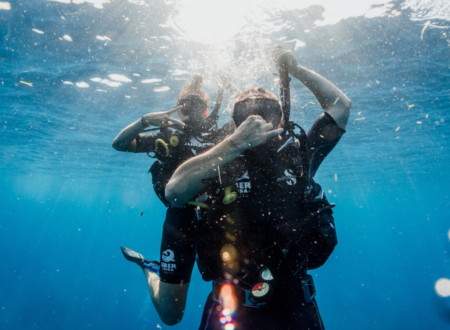Taking the Dive Beyond Fear
The attraction of the underwater world is undeniable, but for some, the thought of going under the water can make some people feel really anxious. Whether you’re a beginner or a seasoned diver, feelings of worry and nervousness can come upon you suddenly. But it’s essential to understand that these emotions are natural and can be managed. Here’s a guide to help you navigate through your underwater worries and embrace the world of scuba diving confidently.
Preparation for Anxiety-Free Diving
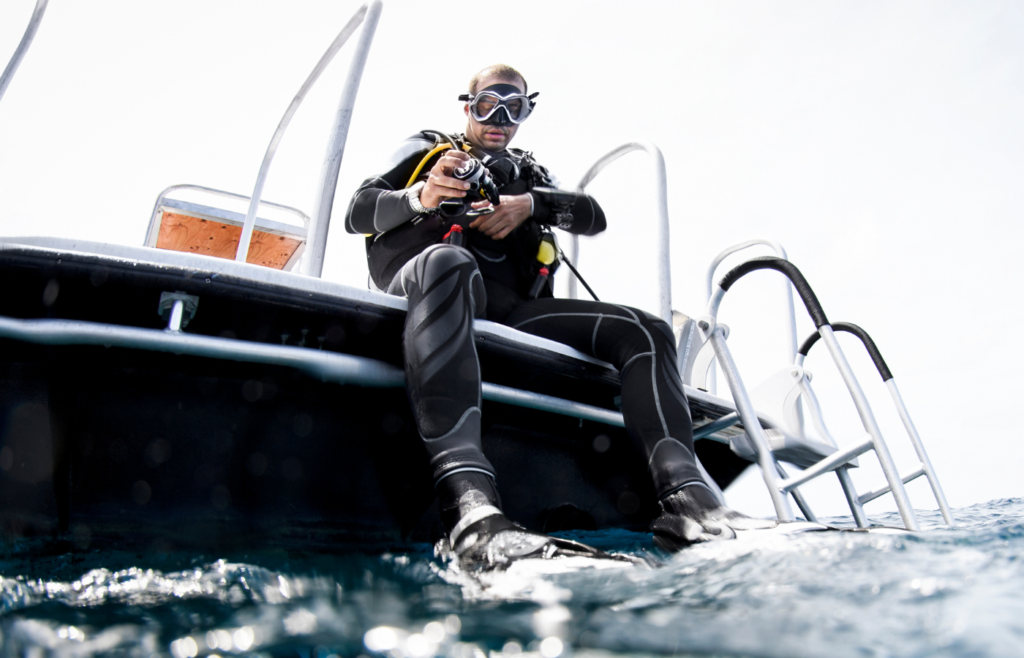
Before even diving into the water, there are preventive measures you can take to ensure that your diving experience is as comfortable as possible. Here are some steps you can take.
Avoid Alcohol or Caffeine
Both alcohol and caffeine can significantly affect your body’s response underwater. They may alter your heart rate, affect your body’s ability to regulate temperature, or even impair judgment. By avoiding them before a dive, you keep your system clear and ready to adapt to the underwater environment.
Never Dive Beyond Your Skill Level
It’s exciting to push the boundaries, but it’s essential to recognize when you might be pushing too hard. Diving in conditions or depths beyond your training can introduce unforeseen challenges. Ensure that you’re well-trained and confident for the dive you’re about to undertake.
Practice Your Skills
Even if you’ve been diving for years, regularly revisiting and practicing your foundational skills can make them second nature. This practice can significantly reduce underwater anxiety, as you know you’re equipped to handle various situations.
Understanding Your Anxiety
Recognize the Fear
Acknowledge that you’re feeling anxious. Often, recognizing the emotion is the first step towards managing it. Understand that diving is an unfamiliar environment for most, and it’s okay to feel unsure at first.
Talk About It
Share your emotion with your instructor or diving buddy. They’ve likely experienced or witnessed anxiety in others and can provide insights, reassurance, and coping strategies.
Preparation is Key
Like any skill or sport, scuba diving demands preparation. A well-prepared diver is not just a safe diver but also a confident one.
Skill Practice
Skills aren’t just techniques; they’re pillars of confidence. The more you practice, the more automatic they become, allowing you to manage situations with ease and reducing room for anxiety.
Choose the Right Dive Buddy
The underwater realm is about shared experiences. Your dive buddy is not just a safety measure but also a companion who shares the wonder of the dive with you. A good buddy system ensures mutual safety, comfort, and, most importantly, enjoyment.
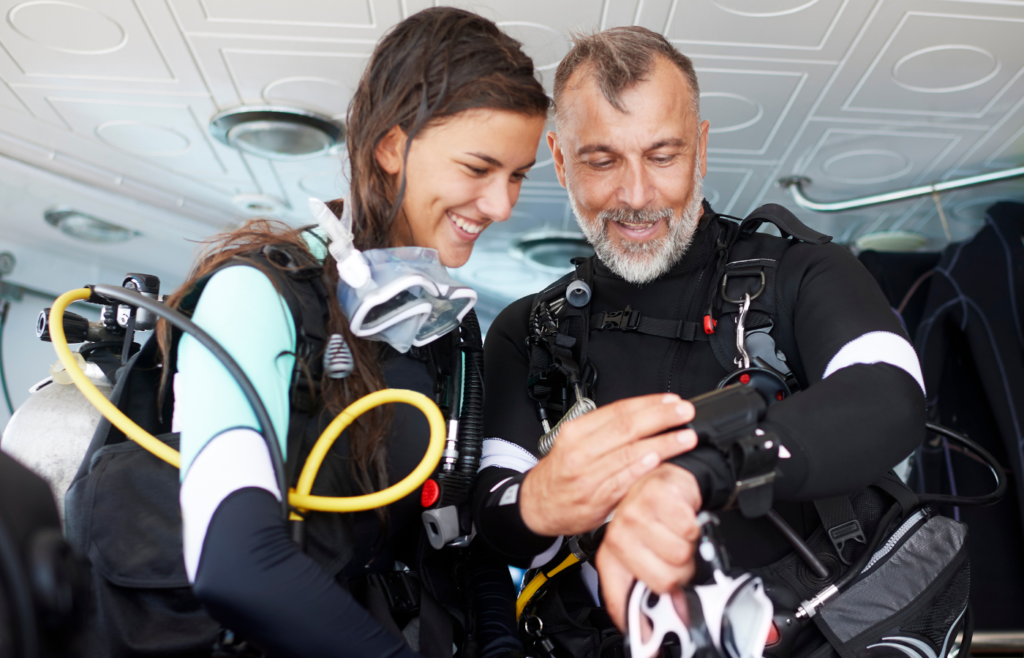
Gear Familiarity
Knowing your equipment is akin to knowing your safety net. Being intimately familiar with every piece of gear you use gives you a sense of security, ensuring that your focus remains on the dive and not on equipment concerns.
Methods to Calm the Mind
The underwater world is serene, but the mind can sometimes stir up storms. Calming techniques are essential tools for every diver’s toolkit.
Slow, Deep Breaths
Breathing is not just essential for life; it’s central to managing emotions. Controlled breathing not only ensures sufficient oxygen supply but also keeps panic at minimum.
Positive Visualization
The mind can be trained. By regularly visualizing positive diving experiences, you can set a mental blueprint for actual dives, reducing the chance of anxiety taking hold.
Gradual Exposure
Rome wasn’t built in a day, and diving confidence isn’t either. Progressing step by step, from shallow to deep, from calm to more challenging environments, helps in building confidence step by step.
Stay Within Your Comfort Zone
Understanding your limits is not an admission of weakness but a mark of wisdom. By recognizing boundaries and pushing them gently, divers ensure safety and gradually expand their comfort zones.
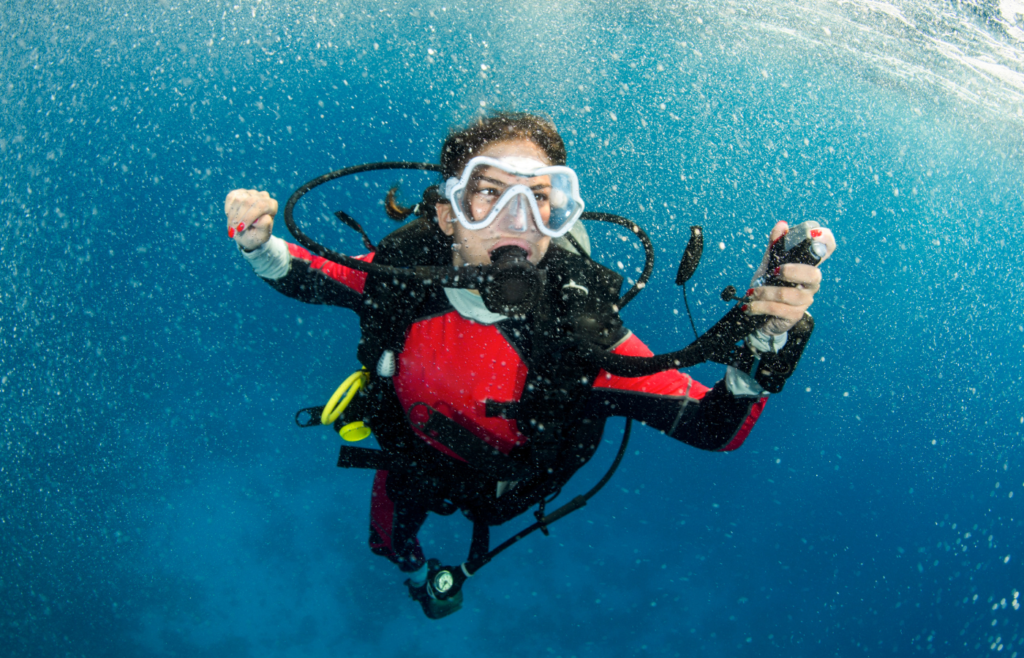
Navigating Through Underwater Anxiety
Once underwater, if anxiety starts to kick in, there are several strategies to manage and overcome these feelings effectively.
Positive Self-talk
The way we speak to ourselves, especially in challenging situations, can make a significant difference. Remind yourself of previous successful dives, rehearse your training, and encourage yourself. This self-affirmation can be the buoyancy you need in moments of doubt.
Analyze What is Making You Anxious
Instead of getting consumed by anxiety, try to pinpoint its source. Is it a particular piece of equipment? The depth? The marine life around? By identifying the root cause, you can address the specific concern instead of feeling overwhelmed.
After the Dive
Reflection isn’t merely a post-dive activity; it’s a growth strategy. Each dive offers lessons, insights, and memories that can shape subsequent dives.
Reflect on the Experience
Every dive, whether smooth or challenging, has a story to tell. By reflecting on dives, you can pinpoint areas of improvement, consolidate learning, and cherish memories.
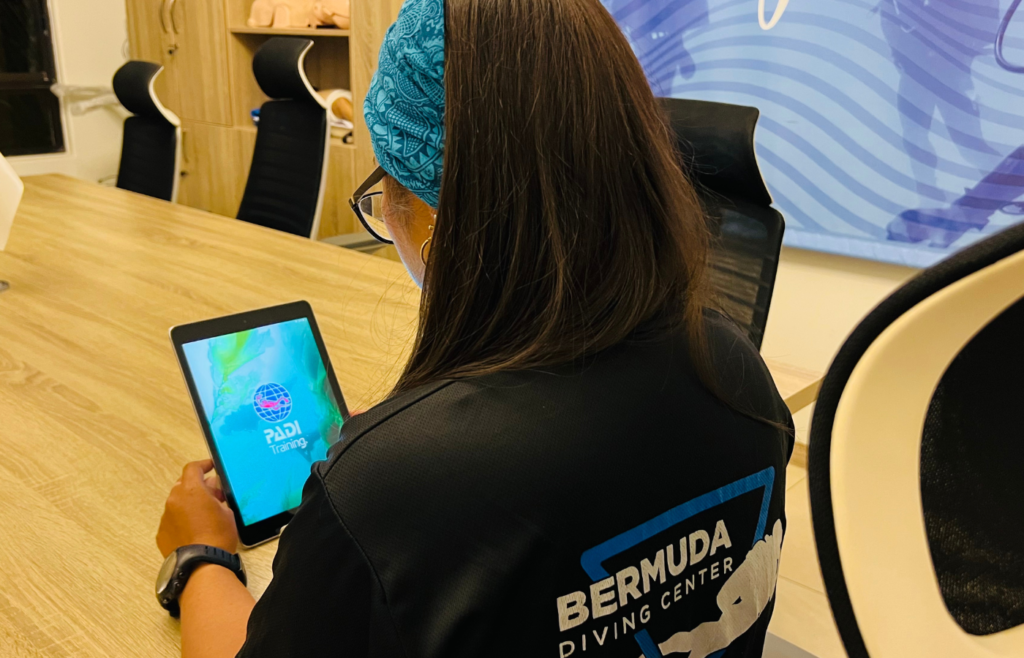
Seek Continuous Learning
The ocean’s vastness mirrors the vastness of knowledge in scuba diving. Continuous learning, through courses or interactions with seasoned divers, ensures that you remain a student of the ocean, always ready, always eager.
Dive with Confidence
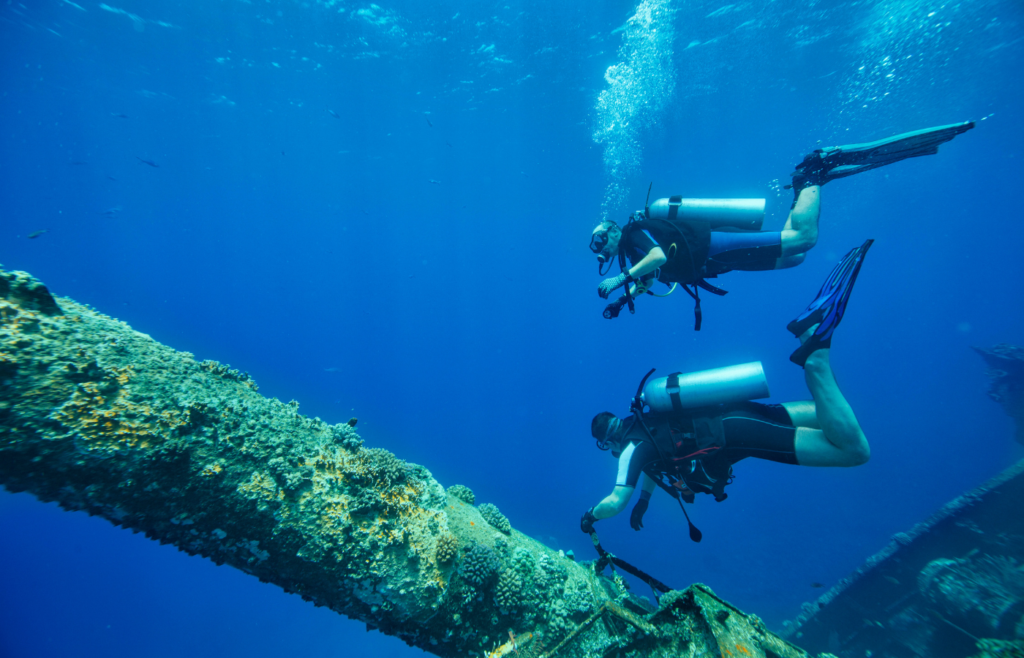
Overcoming underwater anxiety is a journey, not a destination. With patience, understanding, and practice, you can turn those apprehensions into a love for diving. The underwater world awaits, filled with wonder and beauty. So gear up, take a deep breath, and dive into an adventure of a lifetime!


